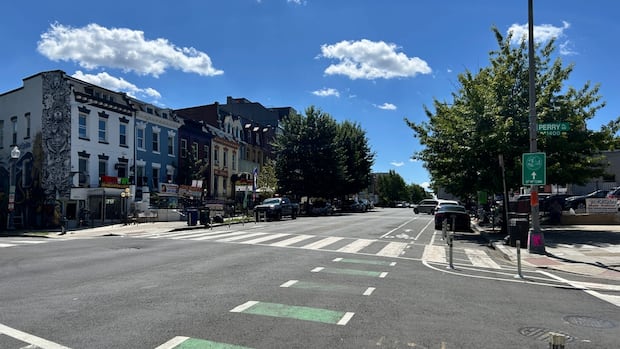In the bustling Columbia Heights area of Washington, D.C., typically filled with Latino shoppers and workers, a noticeable decline in activity has been observed. This change occurred on August 7 when President Donald Trump dispatched federal law enforcement and the National Guard to the city. Fernanda Rivas, whose family owns bakeries in the neighborhood, noted that the increased presence of law enforcement has deterred many customers from visiting. The slowdown in business has caused financial strain for her family after surviving the challenges posed by the pandemic.
Residents and workers in the community have expressed fear and reluctance to go about their daily routines due to the heightened law enforcement presence. Damon Demyers, a meat delivery driver, remarked on the significant decrease in shoppers in the area, impacting businesses he services. While the exact reason for the decrease is not explicitly stated, the general sentiment is that the community is aware of the ongoing law enforcement activities.
Deportations have surged under the Trump administration, with a focus on enforcing immigration laws and deporting individuals deemed as “illegal aliens.” The heightened enforcement has instilled anxiety among immigrant workers, affecting industries that heavily rely on their contributions. Shawn Townsend, president of the Restaurant Association of Metropolitan Washington, D.C., highlighted the apprehension felt by many workers, despite having valid documentation to work in the U.S.
Individuals like Elizabeth and Adriana, who lack legal status, continue to work out of necessity despite the risks of deportation. These individuals face challenges accessing essential services and live in constant fear of being separated from their families. The uncertainty surrounding their immigration status has created a pervasive atmosphere of anxiety and insecurity within the immigrant community.
In response to the heightened enforcement measures, some Latinos have started carrying identification documents to prove their citizenship status and avoid potential discrimination. The need to provide proof of legal status has become a precautionary measure for individuals like Jelver Mazeriegos, who now carries his ID and passport wherever he goes. Despite being legal residents for two decades, families like Rivas’ feel the need to carry identification at all times to affirm their American citizenship.
The current climate of fear and uncertainty has deeply impacted the immigrant community in Washington, D.C., leading to economic challenges and emotional distress for many residents. The ongoing enforcement actions have created a sense of insecurity and unease, particularly among individuals with precarious immigration status, highlighting the complex and multifaceted impact of immigration policies on communities.



